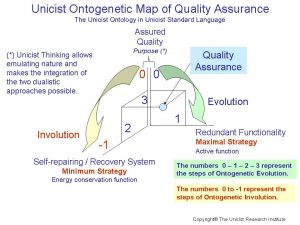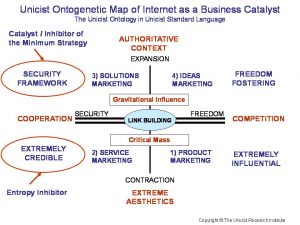Unicist Quality Assurance: the key to complex adaptive systems
Quality assurance is what introduces the necessary reliability to transform a business process into business objects. This allows building adaptive systems or introducing adaptiveness into operational systems.
 Quality assurance is a characteristic that systems have, whether they include human action or not, to provide the accurate result to the point of being substituted by alternative systems in case of failure.
Quality assurance is a characteristic that systems have, whether they include human action or not, to provide the accurate result to the point of being substituted by alternative systems in case of failure.
Nothing is absolutely certain, by definition, within the scope of science. When we refer to certainty we mean that there are at least three alternative plans in case of failure and that alternative processes have been designed to have a probability of failure of less than 0,01.
In order to assure this level of certainty it is necessary to count on a validation process in real conditions that ensures the result or output.
Diego Belohlavek
NOTE: The Unicist Research Institute was the pioneer in using the unicist logical approach in complexity science research and became a private global decentralized leading research organization in the field of human adaptive systems. It has an academic arm and a business arm.
https://www.unicist.net/it/wp-content/uploads/2016/03/turi.pdf








